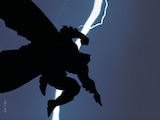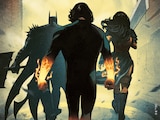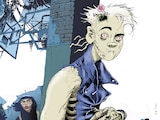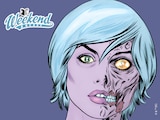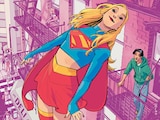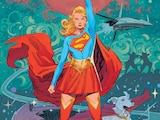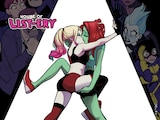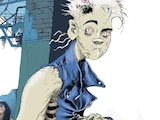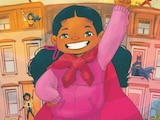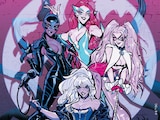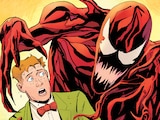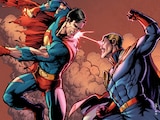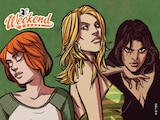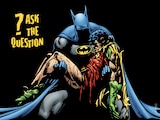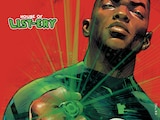And now for the conclusion of THE BRONZE HORSEMAN.
PART TWO
But now, sated with distraction And tired of its rude attack, Neva, at last, was coming back, Looking at ruins with satisfaction And leaving with a little attention Its prey behind. A reprobate, With his sever and low set, Thus, thrusting in a village, helpless, Breaks, slaughters, robs all and oppresses: The roar, rape, swore, alert and wails!... And, under their large booty posted, Afraid of chases and exhausted, The robbers speed to their old place, Losing their loot along the road.
The waves were gone, the pavement, broad, Was opened, and Evgeny, stressed, With heart half-dead and stifled throat, In a hope, fear and awful pains, Runs to the stream, just now restrained. But, in the winning celebration, Waves still were boiling with a passion, As if to flames, under them fanned; They still were with white foam covered, And Neva’s breast was heavily moved, Like the steed’s one after a race. Evgeny sees a boat here; He runs to it – a find, revered, – He calls a boatman at once – The boatman, a guy quite careless, Just for ten kopeks, with great gladness, Takes him into the waves’ wild dance.
And for a long with these waves, close, The much trained rower was in fight, And to sink deeply mid their rows, The scuff, with its brave sailors both, Was apt all time… The other side Is reached, at last. And the frustrated Runs through the so well-known street To his old places. He doesn’t meet A thing, he’d known. The view’s rated As the worst one! All’s in a mess – All is failed down or swept or stressed: The little houses are bent down, Some – shifted, some – razed to their ground By awful forces of the waves; The bodies, waiting for their graves, Are lying round, like aft fight, merciless. Our poor Evgeny – his mind’s flamed – Half-dead under the tortures, endless, Runs there where the inhumane fate Would give him the unknown message, As if a letter, sealed to bear; He’s now in the suburbs’ wreckage, There is the Gulf, the house is near… But what is this? He stopped, frustrated, Went back, returned a little later… He looks… he walks … he looks once more. There is the place their house for And willow-tree. The gates were here – They’re swept… But where’s the house, o grace? And full of troubles, hard to wear, He walked and walked around the place. Told to himself in voices loud – And suddenly, as if all’s found, Struck his forehead and fell in laugh. The night embraced the city, stuffed With all its woe. And still for hours A sleep was running from each house – The folk recalling the past day. Now, through the clouds, weak and pale, The morn ray flashed o’er the mute city And did not found e’en a trace Of the past woe. The dawn, witty, Had safely screened the doing, base. The former life had got its place. Along the streets now free of flooding, With cold indifference, folks are moving. Just having left his lodge of night, The clerk is going at his site. The petty tradesman, very dauntless, Is opening his cellar – wet, Robbed by the waves’ impudent set – Intending to revenge his losses On brothers-humans. From the yard Is pulled the boat, full of mud. Count Khvostov, a pet of Zeus, Now is singing his songs, deathless, To the Neva shores’ former plight.
What’s of Evgeny, our poor hero? … Alas! His agitated mind, Against the immense woe’s billow Didn’t stand untouchable. The wind’s And Neva’s noise was always growing In his poor ears. Mute and half-blind, With awful thoughts, he was a-roaming, Being quite tortured by some dream. A week, month passed by as a stream, At his past home he wasn’t returning And his landlord, when the rent’s time Had gone, gave his corner to some Bard, sunk in a poverty unduly. Evgeny didn’t come for his stuff And soon became a stranger, fully, To world: his day wasn’t long enough For walk; he slept on wharfs till morning His bread was one a beggar has, He wore the dirt and rotten dress. The evil children, with cries joyful, Sometimes threw stones to his back, Often the coachmen’ whips, wrathful, Stung his thin body – for his track Was cast without choosing direction – He seemed to notice nothing else – He was quiet deafened and oppressed By noise of inner agitation. And thus he strayed in his life’s mist – Not humane being, nor some beast – Not fish, nor flesh – not living creature, Nor ghost of dead … But once he slept By Neva’s wharf – the summer’s features Were now like autumn’s. The wind, bad, Was breathing there. The roller, sad, Was splashing its complain and groan And striking ‘gainst the steps of stone, Like the offended at the door Of justice that doesn’t hear him more. The poor waked up. All was gloom round: Falling the rain, wind wailing loud, And it was answered through the night By some alone distant guard... Evgeny got up in a hurry, He recollected his all flurry, Stood on a spot, began to walk And stopped again, almost choked, Intently gazing him around With a wild terror on his face... It seemed that he himself had found By a big house where were placed, With their paw up, as if quite living, Two marble lions, overseeing, And in the height, strait o’er him posed, Over the rock, fenced with cast iron, With arm stretched into the skies, sullen, The idol sat on his bronze horse.
Evgeny startled. Became clear The strange thoughts, torturing his mind – He named the place where played the flood, Where ran the waters-spoilers, fierce, – Merging in one rebellious stream, – The lions, square and, at last, him, Who stood without a move and sound – The cooper head piercing black skies – Him, by whose fatal enterprise This city under sea took ground... He’s awful in the nightly dark! In what a thought his brow’s sunk! What a great might in it lies, hidden! And what a fire’s in this steed! O, proud horse, where do you speed! Where will you down your bronze hoofs, flittin’? O, karma’s mighty sovereign! Not thus you’d reared Russia, sullen, Into the height, with a curb, iron, Before an abyss in your reign?
The poor madman circled around The foot of the black idol’s mass, He gazed into the brazen face Of the half-planet’s ruler, proud. And was his breast oppressed. He laid On the cold barrier his forehead. His eyes were veiled with a mist-cover, His heart was all caught with a flame, His blood seethed. Gloomy he became Before the idol, looming over, And, having clenched his teeth and fist, As if possessed by evil powers, “Well, builder-maker of the marvels,” He whispered, trembling in a fit, “You only wait!...”- And to a street, At once he started to run out – He fancied: that the great tsar’s face, With a wrath suddenly embraced, Was turning slowly around... And strait along the empty square He runs and hears as if there were, Just behind him, the peals of thunder, Of the hard-ringing hoofs’ reminders, – A race the empty square across, Upon the pavement, fiercely tossed; And by the moon, that palled lighter, Having stretched his hand over roofs, The Brazen Horseman rides him after – On his steed of the ringing hoofs. And all the night the madman, poor, Where’er he might direct his steps, Aft him the Bronze Horseman, for sure, Keeps on the heavy-treading race.
And from this time, when he was going, Along this square, only by chance, A sense of terror was deforming His features. And he would then press His hand to heart in a great fastness, As if to make its tortures painless, Take off the worn peaked cap at once, Didn’t turn from earth his fearful eyes And try to pass by.
A small island’s Seen in the sea quite near a shore. A fisherman, the late catch for, Would sail to it with his net, silent, Sometimes – and boil there his soup, poor; Or an official clerk would moor To it in a boat-walking Sunday’s. The empty isle. Seeds don’t beget There any plant. A player, sightless, The flood, had pulled there a ghost, sad, Of an old hut. The water over, It had been left like a bush, black. Last spring, by a small barging rover, It was conveyed to the shore, back – Destroyed and empty. By its entry, They’d found the poor madman of mine And, for a sake of the Divine, Buried his corpse in that soil, scanty. -- ALEKSANDR PUSHKIN (Born 1799, Died 1837)

